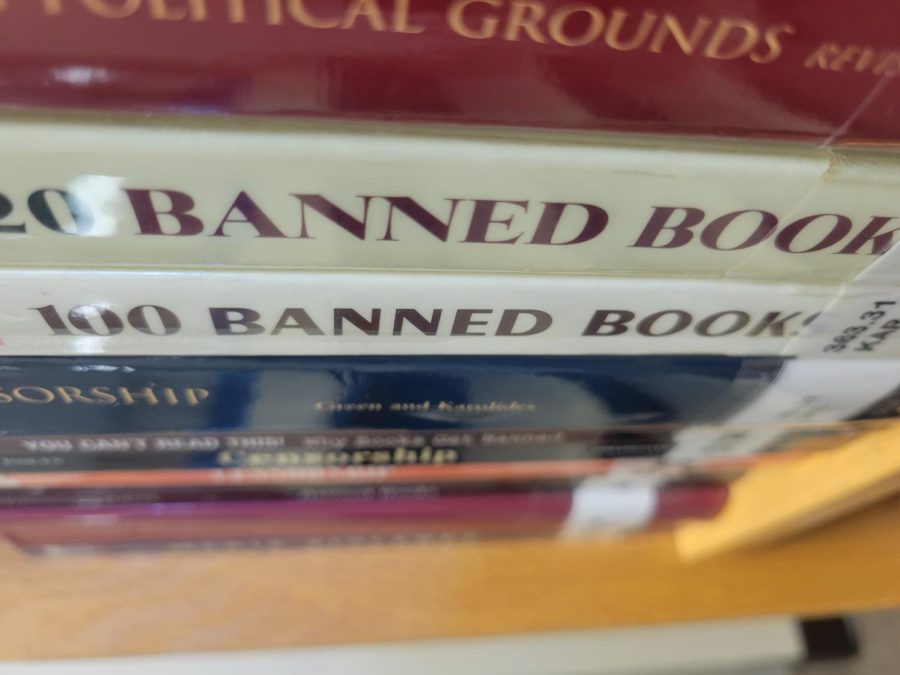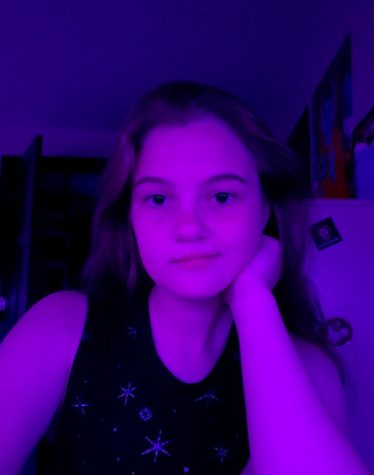Book banning on the rise
Book banning efforts have been spreading across the nation in recent months.
February 11, 2022
Earlier this month, the Tennessee McMinn County School Board voted to ban the landmark “Maus” from their eighth-grade curriculum, the concern being the profanity and depiction of nudity. The school board’s statement claims they do not wish to diminish the value of the novel, or the atrocities committed during the Holocaust: “To the contrary, we have asked our administrators to find other works that accomplish the same educational goals in a more age-appropriate fashion.” This would be a somewhat valid concern if this was a kindergarten class. But remember, these are eighth-graders, the age demographic being 13-year-olds. So, you have to wonder if this is actually about “protecting” children, and not a ploy to censor uncomfortable content.
Book bans are nothing new in the education system, although books being challenged and upheld is much more common. On occasion, here at LHS, there have been a few concerned parents trying to keep their kids away from certain books. Mary Peters, who has been a librarian here at LHS for 16 years, has come across a few of these parents. Though only one book has ever been challenged officially, guardians have made requests for their children individually at LHS.
“I have had several requests from parents that they don’t want their student reading a certain author,” said Peters. “I do have to grant that request because they can request for their own child not to read anything.”
Peters explains that there are protective systems in place to prevent books from getting pulled for arbitrary reasons and that the district’s library policy involves a reading committee to make those decisions.
“We do have where if a parent wants to challenge a book they actually have to take it to a committee,” said Peters. “There’s parents, students, community members on this committee and they all have to read the entire book and have the conversation. I don’t feel like we are necessarily lax; it’s a good process that everyone has to be informed of the whole book, not just parts of it.”
According to Peters, work by author Ellen Hopkins and Jay Asher’s “Thirteen Reasons Why” are the most standout books when it comes to complaints. And though Peters respects parents’ rights to keep their kids from reading certain books, she feels that banning books for an entire school or library, keeping others from being able to read them, is not fair to others.
“I am not for banning anything. People can obviously form their own opinions, and they can definitely have their own opinion about a book,” said Peters. “But to ban something takes away the right for someone else to read that, and that’s not a decision I think you should be making from other people.”
Martha Winklepleck, an English teacher here at LHS, dealt with some parent concerns regarding “The Glass Castle,” a memoir by Jeannette Walls, which is assigned to her Accelerated English II class. The memoir details the ups and downs of Walls’ childhood as a nomad with her alcoholic father and eccentric mother. Since its publication in 2005, it has faced scrutiny from parents all over the U.S. for being too disturbing for adolescent readers. While Winklepleck can understand those concerns, as an English teacher, she would hope that her class is a safe place to discuss difficult topics.
“I am a parent now, and that forces me to look from a different perspective. I certainly understand parents who would look at a text like ‘The Glass Castle’ and find a section that seems questionable and ask why this is the best book to be teaching, I certainly understand that,” said Winklepleck. “However, there is something Jeannette Walls said, which is you have to trek through the muck of life to find the good in order to come out on the other side. This book, while it does have some murky moments, allows for conversations that other books don’t and allows me to guide discussions about topics that may not be found elsewhere.”
Winklepleck believes that English class is where we learn to dig deeper and engage with ideas so that when we eventually get to the real world, we can keep challenging ourselves.
“The goal is to get students to think critically in the classroom so that beyond the classroom they can be critical thinkers and they can contribute to a society that thinks,” said Winklepleck.
There seems to be a common thread among the books that tend to be banned. They either contain mature themes, including profanity, drug use, and so on, or surround themes that touch on “controversial” social issues and discussion topics. Most recently the books targeted by these banning efforts often discuss LGBTQ+ identities, racial prejudice, and sexual abuse, though the reasoning is varied from place to place. I compared multiple lists of banned books and realized some of the misgivings about these texts were somewhat valid, and some are completely arbitrary or based on bias. In a list compiled by Business Insider, many of the newer books involved stories about gender identity and sexuality. Classic novels, such as the list on the ALA site, have been pulled from the curriculum for many reasons from promoting racism to promoting communism.
Of course, the formula is not always concrete. Those who grew up in the 2000s may be surprised to hear those iconic books they grew up with have been challenged or outright banned in schools across the country. According to the American Library Association, “Harry Potter” is the most challenging series of books of the 21st century, being banned for “promoting witchcraft” as recently as 2019. Roald Dahl’s children’s book “The Witches” once held the 22nd spot on the most challenged books, for promoting satanism and being misogynistic. According to Reading Partners, books like “Harriet the Spy” and “James and the Giant Peach” have been banned for being too scary or promoting bad behaviors, such as lying and cursing.
It is hard to ignore the strange infantilization of students when parents challenge these types of books. The parents and people involved seem to treat their kids as if they were toddlers who need to be kept away from the kitchen knife drawer. From what I gather, it comes down to sheltering. It becomes especially absurd when we consider that in the era of the Internet, banning books in schools is ultimately pointless. You cannot keep your child away from the uncomfortable, the controversial, and the mature forever. When you shield them from the new, they will go out looking for it.
This type of banning is something we should have ended years ago, but these book challenges keep springing up. It’s not just a one-off occurrence in Tennessee with “Maus,” the New York Times reported recently that “All Boys Aren’t Blue” has been targeted for removal in 14 different states, and there have been many new challenges just in the past few weeks. I am aware we talk a lot about censorship, but perhaps we wouldn’t need to keep having this conversation if the issue was resolved. Keeping the younger generation from being exposed to knowledge erodes their critical thinking skills. Now, a handful of these concerns do manifest as genuine concern, not just an impulse to censor or shelter. But whether these concerns stem from bias or mere overprotectiveness, the banning of uncomfortable content isn’t protecting kids. It’s protecting the status quo. It doesn’t allow them to think outside the box or challenge their own perceptions. It just keeps them in a bubble or worse, blind to how the real world works. ignorance is much more detrimental than a novel containing profanity. As a student from Winklepleck’s class put it, “If we are not challenged by what we read, we will never change or grow as a society.”









